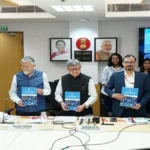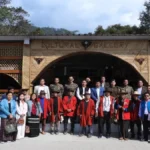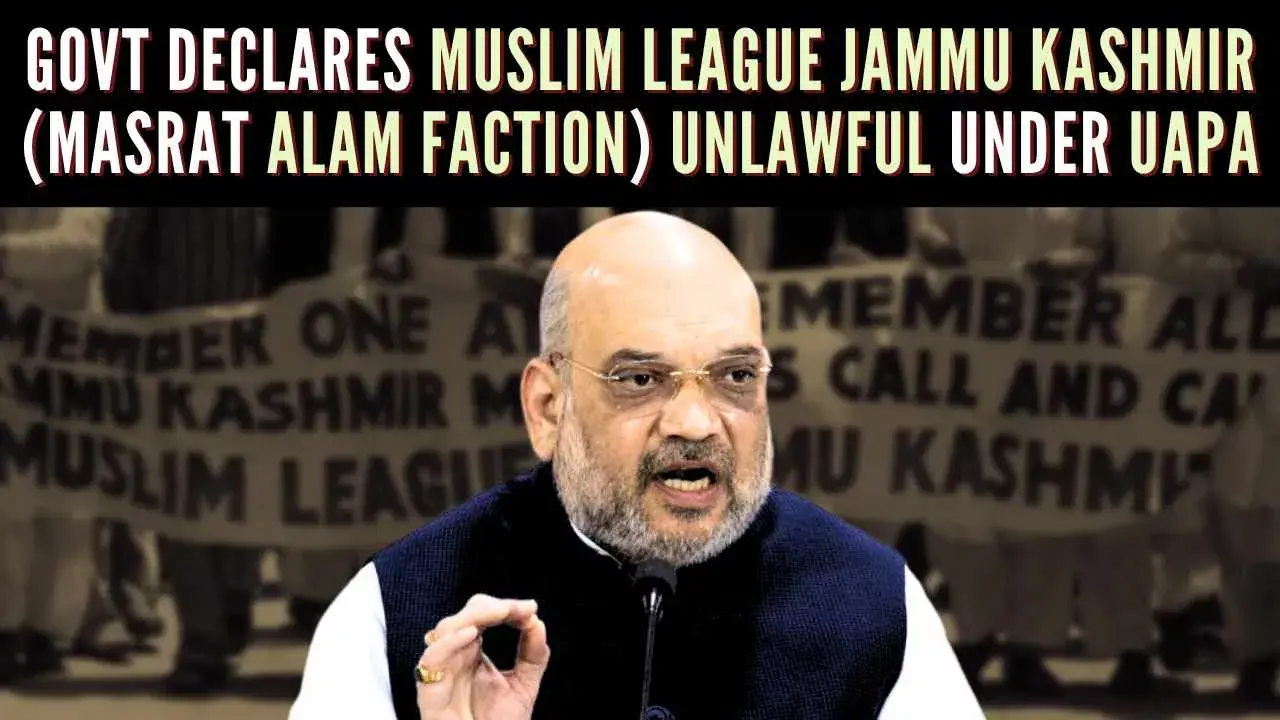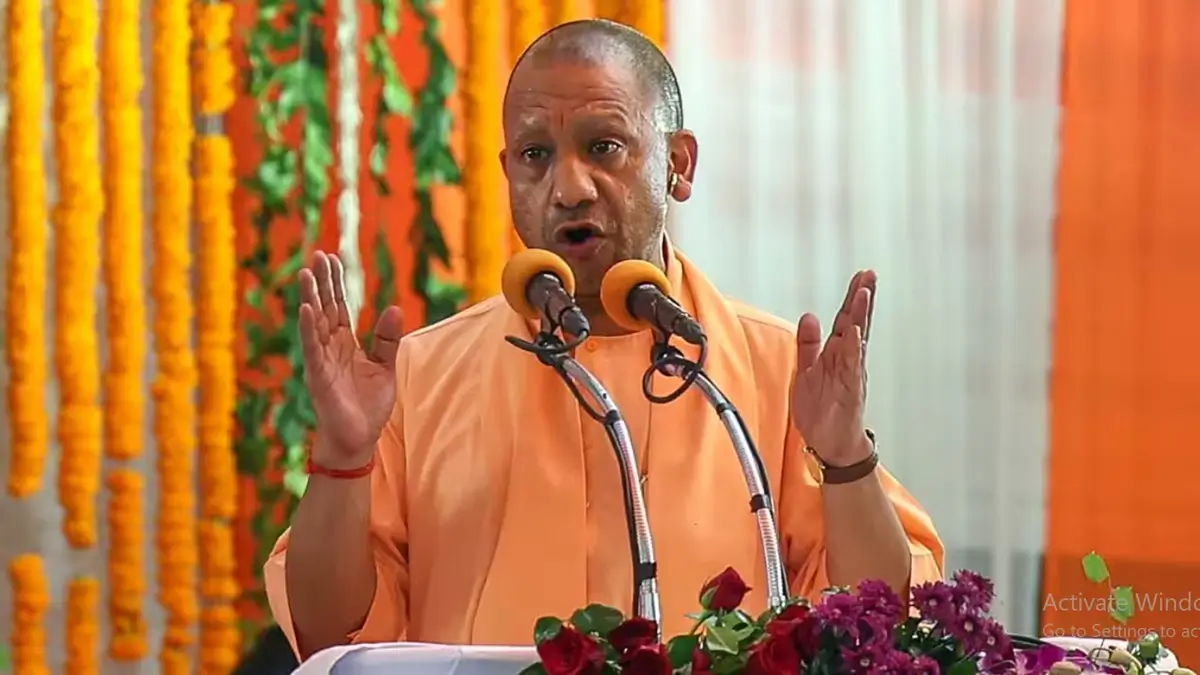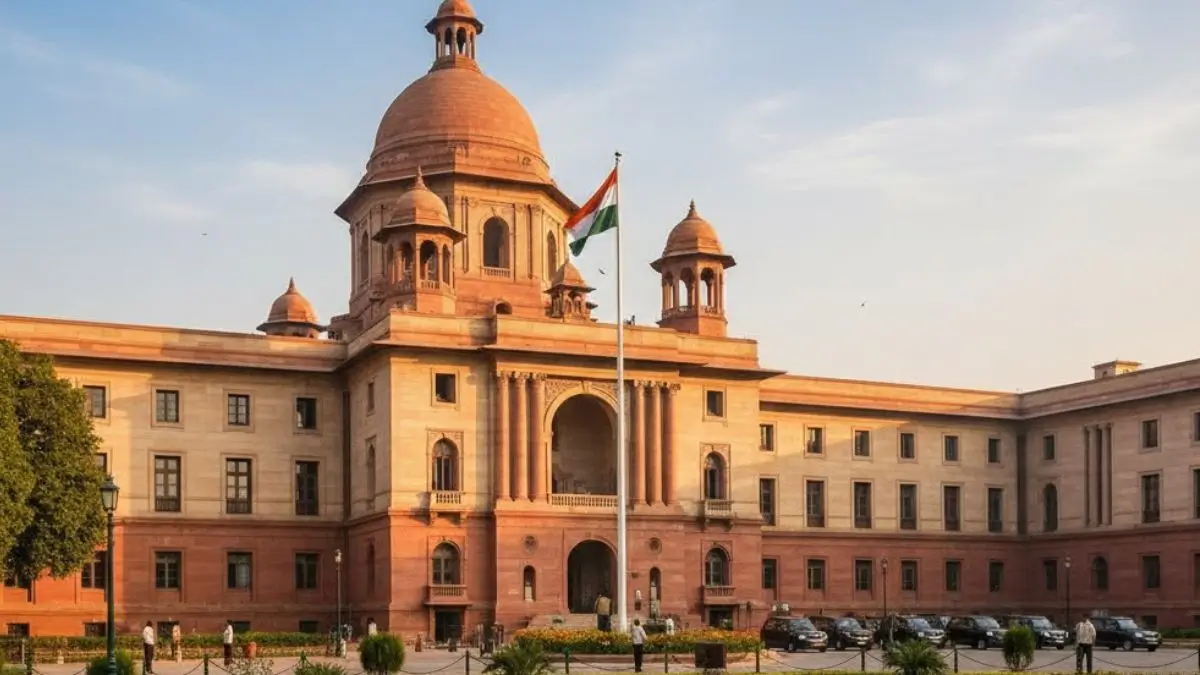MHA Declares Muslim League in Jammu & Kashmir, Masarat Alam Faction Unlawful Under UAPA
The Ministry of Home Affairs (MHA) has recently declared the Muslim League in Jammu and Kashmir, along with the Masarat Alam faction, as “unlawful associations” under the stringent Unlawful Activities (Prevention) Act (UAPA). This significant move comes in light of their alleged involvement in various anti-national activities, posing a threat to the sovereignty and integrity of India.
This declaration holds considerable importance in the context of the region’s security and ongoing efforts to maintain peace and stability. The MHA, through this action, aims to curb the influence and operations of these organizations, which have been purportedly linked to activities against the country’s interests.
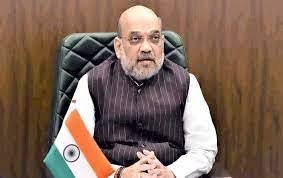
Why this News is Important:
Addressing National Security Concerns
The decision to declare the Muslim League and the Masarat Alam faction as unlawful under UAPA is crucial in addressing the rising concerns regarding national security. This step highlights the government’s commitment to thwarting organizations allegedly involved in activities threatening the nation’s integrity.
Countering Anti-National Elements
By labeling these groups as unlawful, the government is taking a firm stance against entities suspected of promoting anti-national sentiments and activities. It showcases a proactive approach to counter such elements aiming to disrupt peace and stability in the region.
Historical Context:
The Muslim League in Jammu and Kashmir has a historical legacy dating back to the pre-independence era when it played a significant role in the politics of the region. However, over time, certain factions within the organization allegedly deviated from political ideologies, indulging in activities against the nation’s interests.
Masarat Alam, a prominent figure associated with the Muslim League, has been previously detained and accused of leading protests and orchestrating anti-India campaigns. His arrest and subsequent actions have been contentious, sparking debates about civil liberties and security concerns in the region.
Key Takeaways from “MHA Declares Muslim League in Jammu & Kashmir, Masarat Alam Faction Unlawful Under UAPA”:
| Serial Number | Key Takeaway |
|---|---|
| 1. | The Ministry of Home Affairs has designated the Muslim League in Jammu and Kashmir and the Masarat Alam faction as “unlawful associations” under the UAPA. |
| 2. | This declaration is aimed at curbing alleged anti-national activities that pose a threat to India’s sovereignty and integrity. |
| 3. | It signifies the government’s proactive approach toward addressing national security concerns in the region. |
| 4. | The move has historical relevance considering the past roles of these entities in the political landscape of Jammu and Kashmir. |
| 5. | The action raises debates concerning civil liberties, security measures, and countering anti-national elements in the region. |
Important FAQs for Students from this News
1. What does the declaration of the Muslim League and Masarat Alam faction as “unlawful associations” signify?
The declaration indicates that these groups have been identified as organizations involved in activities against the nation’s interests and pose a threat to India’s sovereignty and integrity. This designation under UAPA allows the government to take stringent actions against them.
2. What is the Unlawful Activities (Prevention) Act (UAPA)?
The UAPA is a stringent law enacted to prevent unlawful activities that pose a threat to the sovereignty and integrity of India. It empowers the government to deal strictly with activities, associations, or individuals involved in terrorist activities or actions that disrupt peace and national security.
3. How does this declaration impact the security scenario in Jammu and Kashmir?
The declaration signifies a significant step toward addressing security concerns in the region. By banning these associations, the government aims to curb alleged anti-national activities, thereby working towards maintaining peace and stability in Jammu and Kashmir.
4. Who is Masarat Alam, and what role does he play in this context?
Masarat Alam is associated with the Muslim League and has been accused of leading protests and anti-India campaigns. His faction’s involvement in activities against the nation’s interests led to the government’s decision to designate the group as an “unlawful association” under the UAPA.
5. What implications might this action have on civil liberties and security measures?
The declaration raises debates concerning civil liberties and security measures. While it addresses security concerns by targeting alleged anti-national elements, it also triggers discussions about the balance between national security and individual freedoms
Some Important Current Affairs Links









